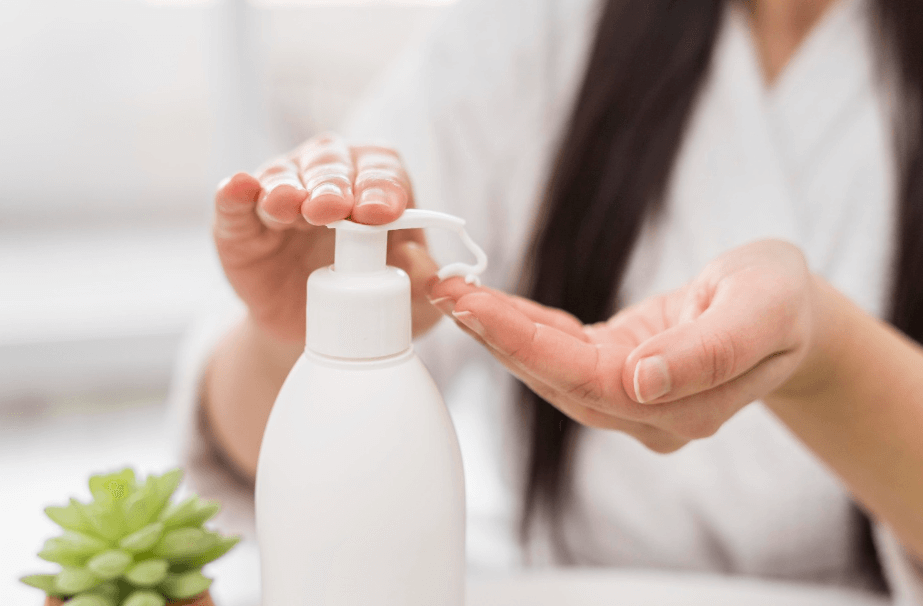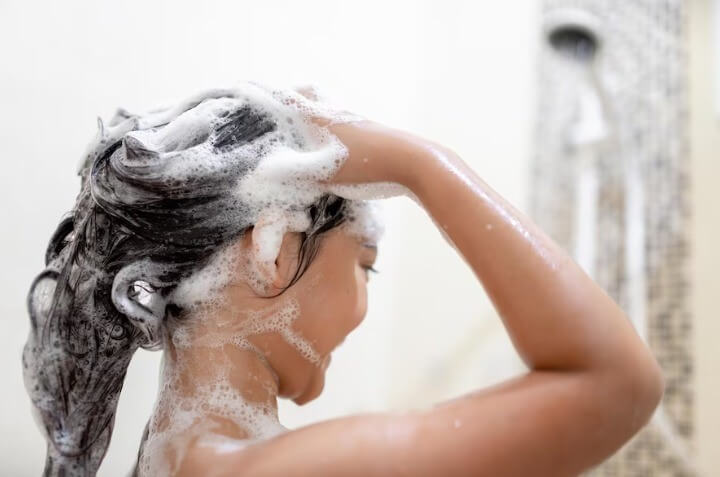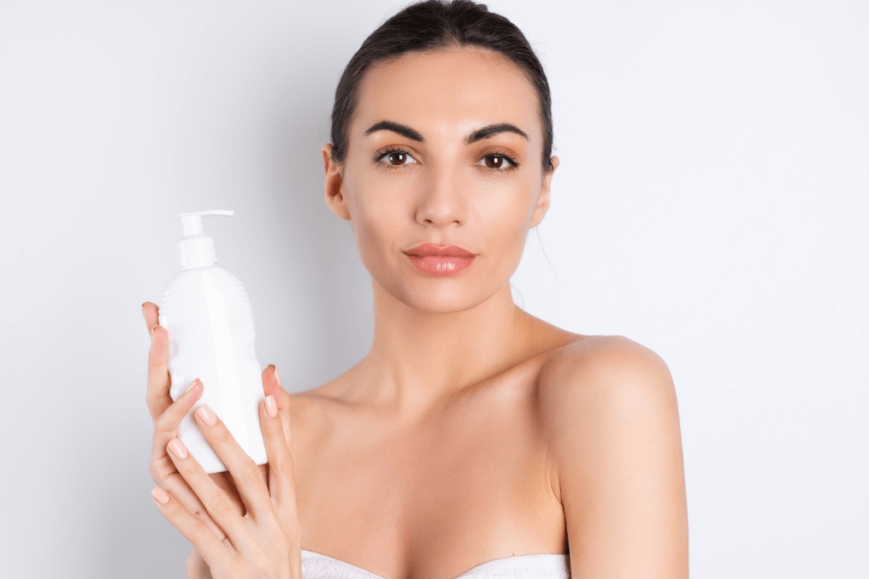Routine Shampoo is a specially developed product intended to clean and improve the quality of hair quickly. When it comes to hair care regimens, selecting the most appropriate Shampoo for the hair is crucial. Depending on your hair problem, whether you have an oily scalp, dry hair, or any other issues, routine Shampoo has a variant that fits your needs.
Choosing the correct type of Shampoo is crucial for hair care. This assists in cleaning the hair and scalp to rid them of dirt, oil, and other materials while supplying the hair with the nutrients that it requires. The suitable Shampoo may effectively prevent damage, stimulate hair growth, and enhance the look and quality of hair.
Hair oils such as Castor oil, Amla oil, Coconut oil, or Rosemary oil can be massaged into your hair and left overnight. Thus, washing in the morning with a decent routine shampoo, free from additional oil on the scalp, helps improve the condition of the head.
What is Routine Shampoo?
Routine Shampoo is a hair care product that allows for washing the scalp and hair by removing dirt, oil, and other products that may have been applied to the hair. It usually has surfactants, which are cleaning agents that produce foam and assist with removing enveloped viruses.
Routine Shampoo can also contain conditioners, additives, various active substances for hair type and problem, and fragrances. The benefits of the Shampoo are aimed at improving the health of the scalp, hair cleanliness, and the general appearance and ease of managing the hair.
How do you select the best routine for washing your hair?
Choosing the right routine Shampoo involves considering several factors to ensure it meets your hair’s needs effectively:
- Hair Type: Determine whether your hair type is oily, dry, normal, curly, straight, coloured, or chemically processed. There are various types of dandruff, and they are treated with multiple shampoos.
- Scalp Condition: Check for any issues such as dandruff, irritation, or sensitivity on the scalp. Find shampoos with compounds that can alleviate or cure these problems.
- Hair Concerns: Decide on any particular problems, such as frizzy hair, damaged hair, flat hair type, or hair loss. Select shampoos that contain active ingredients that can help tackle these issues.
- Ingredients: If you want the products to be natural, avoid using sulfates and parabens. Some beneficial ingredients include vitamins, proteins, and oil for your hair type.
- Brand Reputation: Identify established brands recognized for manufacturing quality hair care products. Customer testimonials and recommendations are also a good source of information in this process.
- Trial and Observatio: Try various shampoos available in the market to choose the one best suited for your hair. Over time, measure how shiny your hair is to check the conditioner’s effectiveness.
Considering these factors, you can choose a routine shampoo that cleanses, nourishes and protects your hair in the best way possible.
Always perform a patch test before using new hair care products to check for adverse reactions like itching or redness.
How should you wash your hair?

Here are some essential tips for washing your hair correctly to maintain its health and cleanliness:
Avoid overusing products to prevent residue buildup on hair and scalp, which can lead to greasiness and dullness.
The Myth and Truth About Routine Shampoo
- Myth: Many people believe washing hair daily with Shampoo makes it healthier.
- Truth: If one is in the habit of washing their hair daily, then such hair becomes robbed of its natural oils that act as moisturizers. As for the frequency of hair washing, it is better to wash hair based on hair type and requirement, generally 2-3 times per week.
- Myth: Warm water effectively removes dirt from your hair.
- Truth: The hair can lose its shine when exposed to too much heat and hot water, destroying hair cells and removing natural hair oils. On the other hand, cold water is much easier on the hair and does not strip out moisture from the hair.
- Myth: Shampoo can be used for any hair type.
- Truth: It is also essential to understand that each hair type needs a particular Shampoo. Special shampoos for your hair type are necessary for better effectiveness and improved hair condition.
- Myth: If more Shampoo provides cleaner hair, then using a large amount of Shampoo is optimal.
- Truth: It is a myth to assume that applying more Shampoo will clean your hair better; it strips the hair of its natural oils, leading to a dry and itchy scalp. To clean a location effectively, just the correct quantity should suffice.
- Myth: It is important to note that all shampoos pose health risks due to the inclusion of certain chemicals.
- Truth: There are shampoos out there that do not have any ingredients that are dangerous to human health. Most shampoos do not contain sulfates, parabens, and many other ingredients that are said to cause harm. When finding this design, always check for labels that display these features.
- Myth: Vigorous scalp rubbing facilitates cleaner hair compared to mild rubbing in the same manner.
- Truth: One will realize that washing their hair frequently washes off the sebum that is necessary for the scalp as it causes irritation and produces more sebum. It may involve gentle massaging, which is efficient and safer to ensure the health of the scalp.
- Myth: It is perfectly acceptable to stick to one brand of Shampoo for years.
- Truth: Hair requires modification from time to time depending on age, climatic conditions, and other aspects of life. For better efficacy and satisfaction, it is recommended to change the type of Shampoo once in a while, depending on your hair type.
- Myth: This is why natural shampoos are always the best.
- Truth: Some natural shampoos might be less harsh than their chemical counterparts, but their efficacy depends on the blend. It is also advisable to look at these ingredients and ensure they suit one’s hair problems.
The Proper Application of Routine Shampoo

Using routine Shampoo properly ensures your hair is thoroughly cleansed and nourished. Follow these steps for optimal results:
This process should start by rinsing your hair with lukewarm water. This assists in detangling the hair strands and helps the Shampoo work properly through the hair cuticles.
Take a rag and wet it with a dime-sized portion of the routine Shampoo. The changes must depend on the hair’s length and thickness.
After wetting your hair, apply the Shampoo by rubbing it between your palms and running it up and down the hair strands. Rub the Shampoo between your palms to spread it from the roots to the hair tips. This ensures that all hair is properly washed and nourished to improve its health.
It is also important to rinse your hair with normal water to ensure that no shampoo is left on it. Avoid using hot water because it releases the natural oils from your hair and scalp.
If you use a dedicated conditioner, apply it to hair ends only after washing it with Shampoo. Allow it to sit for a couple of minutes, and then wash off with warm water.
It is advisable to rinse the hair with cold water to close the cuticles and give it the shiny appearance it deserves.
Pat and twist your hair with a towel to remove as much moisture as possible. Rub softly to prevent straining strands, which can lead to breakages and frizz.
If you have a regular hair styling regimen, continue with it. Use tools such as a hair dryer or straightener and heat protectants.
Shampooing frequency also varies from person to person and depends on their hair type and routines. Generally, it is advisable to wash the hair every two or three days, depending on the hair type.
Seek professional advice if you notice persistent scalp irritation, redness, or unusual hair loss despite proper product use and care.
Benefits of Using Routine Shampoo:
Regularly using Shampoo helps maintain overall hair health, ensuring it looks and feels its best daily.
DIY Routine Shampoo Recipes
Certainly! Here are some DIY routine shampoo recipes presented in a table format for clarity:
| Recipe Name | Ingredients | Instructions |
|---|---|---|
| 1. Basic Coconut Milk Shampoo | 1 cup coconut milk | Mix coconut milk, liquid castile soap, and oil in a bowl. |
| 1/2 cup liquid castile soap | Optional: Add essential oil drops for fragrance. | |
| 1 tbsp olive or almond oil | Pour into a clean shampoo bottle and shake well before use. | |
| 10-15 drops of essential oil (optional) | Apply to wet hair, massage, and rinse thoroughly. | |
| 2. Honey and Aloe Vera Shampoo | 1/2 cup liquid castile soap | Mix castile soap, honey, aloe vera gel, and oil in a bowl. |
| 1/4 cup honey | Optional: Add essential oil drops for scent. | |
| 1/4 cup aloe vera gel | Transfer to a shampoo bottle and shake before each use. | |
| 1 tbsp olive or coconut oil | Apply to damp hair, lather, and rinse thoroughly. | |
| 3. Herbal Infused Shampoo | 1/2 cup dried herbs (e.g., rosemary, chamomile) | Boil water and steep dried herbs for 20-30 mins. Strain and keep infused liquid. |
| 2 cups water | Mix herbal infusion with castile soap and apple cider vinegar in a bowl. | |
| 1/4 cup liquid castile soap | Optional: Add essential oils for fragrance. | |
| 1 tbsp apple cider vinegar | Pour into a shampoo bottle and shake well. | |
| 10 drops of essential oil (optional) | Use regular Shampoo, applying, massaging, and rinsing thoroughly. |
Benefits of Making Your Shampoo:
- Control Over Ingredients: Choose natural, organic ingredients for your hair.
- Avoid Harsh Chemicals: Homemade shampoos are free from sulfates and parabens.
- Cost-Effective: Economical compared to commercial products.
- Customizable: Adjust recipes to match your hair’s needs and preferences.
These DIY routine shampoo recipes offer a natural alternative for healthy, nourished hair. They allow you to tailor your Shampoo to fit your hair care goals effectively.
Potential Side Effects and Precautions
Conclusion
Using the right product and regularly washing your hair are the two parts of the proper hair treatment for the perfect solutions for healthy and strong hair. focused on purification, scalp health advantages, moisturizing effects, and also its role as a strengthener that repairs the texture and makes hair shine. Making the right routine shampoo choice that suits your hair type and the issues you face is the key to enhancing the health of your entire hair.
The Routine Shampoo provides many ways to solve all kinds of problems. Not only can Routine Shampoo, which contains rain into the hair through the cleaning process and also feed the hair, make the hair blacker and thus regenerate the hair.
FAQs
-
How often should I use Routine Shampoo?
The frequency with which Routine Shampoo should be used depends entirely on an individual’s hair and scalp care needs. Most people find it sufficient to shampoo 2-3 times a week.
-
Is it possible for everyday Shampoo to assist in dealing with particular hair worries such as dandruff dryness?
Yes, for instance, Routine Shampoo comes in variations that provide solutions for particular hair conditions, such as flaking scalps and oiliness. Getting the appropriate version would be useful in solving these conditions.
-
Is it okay to use Routine Shampoo on coloured or chemically treated hair?
Yes, Routine Shampoo has different variants for coloured or chemically treated hair. These variants avert fading by enhancing colour vibrancy while minimizing damage from bleaching chemicals and dyes.
-
What is the perfect Routine Shampoo for my hair type?
When choosing a routine shampoo, think about your hair’s texture, the condition of your scalp, and any specific concerns such as volume and moisture. Knowing the essential components of a product can help you decide what’s best for you.

